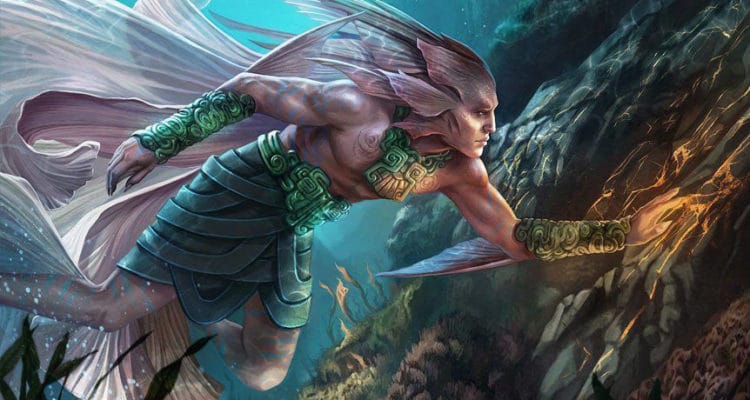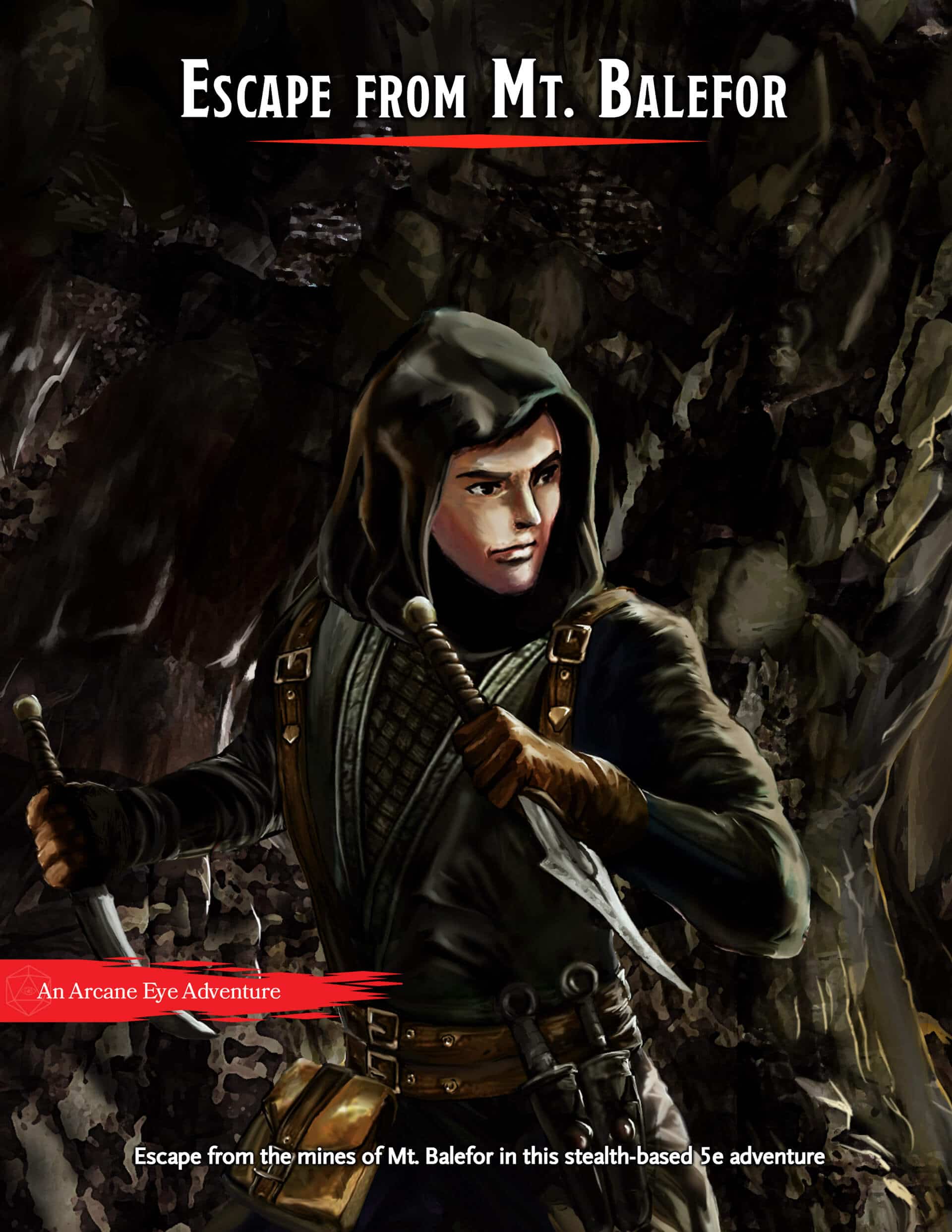Triton Guide 5e
Published on April 29, 2021, Last modified on May 5th, 2022

Magali Villeneuve - Wizards of the Coast - Silvergill Adept
What is this guide?
This guide is meant to give you an idea of whether or not the triton will be right for your 5e character build.
The color code below has been implemented to help you identify, at a glance, how good that option will be for your triton. This color coding isn’t a hard and fast rule; there are plenty of sub-optimized options out there that will be viable to your party and will be fun to play.
- Black is a trait shared by many races and or will not impact the effectiveness of your character build
- Red isn’t going to contribute to the effectiveness of your character build at all
- Orange Situationally good, but a below-average option otherwise
- Green is a good option
- Blue is a great option, you should strongly consider this option for your character
- Sky Blue is an amazing option. If you do not take this option your character would not be optimized
Tasha's Cauldron of Everything Update
Tasha's Cauldron of Everything has added the "Customizing Your Origin" option that may affect the ability score increases, languages, and proficiencies in this guide. To read more about this, visit our D&D Race Guide.
What are Tritons in 5e?
Source: Volo's Guide to Monsters
Tritons are aquatic humanoids. They live in deep parts of the ocean, far away from the prying eyes of surface dwellers. In fact, most tritons have never ventured as far as the surface, making them ignorant to the customs of the world above, causing them to come across as rude. These ocean-folk are kindhearted and compassionate, protecting all those that call the sea their home. If the Material Plane is ever threatened, tritons have been known to surface, fighting alongside and protecting the inhabitants of the surface world.
Tritons are a playable character race found in Volo’s Guide to Monsters.
Triton 5e Traits
Ability Score Increase: Tritons are unique in that they get three ability score increases, namely +1 to STR, CON, and CHA. This makes them not particularly good at anything, but it is still an acceptable spread for some builds.
Size: Medium is the typical size of most races, and is neither good nor bad.
Speed: Tritons have a standard walking speed of 30 feet and a swimming speed of 30 feet. Having a swimming speed can be extremely useful, especially when playing in an aquatic-focused campaign.
Amphibious: Being able to breathe underwater makes certain scenarios much easier, especially if nobody in the party has access to the water breathing spell.
Control Air and Water: Free innate spells at 1st, 3rd, and 5th level is not something to complain about, even if you can only use one once per long rest. Naturally, they aren’t the most powerful spells, but offer some good utility and add a lot of flavor to the Triton.
- 1st Level – Fog Cloud: Obscuring an area can be better than it sounds. It can help you hide and get your rogue into Sneak Attack position, aid an escape, or lure enemies into a trap.
- 3rd Level – Gust of Wind: This spell is usually useless, unless you find yourself in the rare situation where you can use it to push an enemy off of a cliff. Still, its a free spell.
- 5th Level – Wall of Water: Not nearly as powerful as the other wall spells, but still useful. While it won’t really keep anyone in or out like wall of stone would, this spell still offers some safety against fire and projectiles.
Darkvision: Darkvision is always great, but its advantage can be ruined if your party members do not also have it.
Emissary of the Sea: Prepare for loads of Aquaman jokes. This trait is extremely situational and the communication doesn’t even work both ways.
Guardians of the Depths: Cold is quite a common damage type, so having resistance for free is fantastic.
Sources Used in This Guide
- BR: Basic Rules
- GotG: Bigby Presents: Glory of the Giants
- SotDQ: Dragonlance: Shadow of the Dragon Queen
- ERLW: Eberron: Rising from the Last War
- EEPC: Elemental Evil Player’s Companion
- EGtW: Explorer’s Guide to Wildemount
- FToD: Fizban's Treasury of Dragon
- GGtR: Guildmasters' Guide to Ravnica
- MotM: Monsters of the Multiverse
- MToF: Mordenkainen’s Tome of Foes
- MOoT: Mythic Odyessys of Theros
- PAitM: Planescape: Adventures in the Multiverse
- PHB: Player's Handbook
- SAiS: Spelljammer: Adventures in Space
- SCoC: Strixhaven: A Curriculum of Chaos
- SCAG: Sword Coast Adventurer’s Guide
- TCoE: Tasha’s Cauldron of Everything
- TTP: The Tortle Package
- WBtW: The Wild Beyond The Witchlight
- VRGtR: Van Richten's Guide to Ravenloft
- VGtM: Volo's Guide to Monsters
- XGtE: Xanathar’s Guide to Everything
